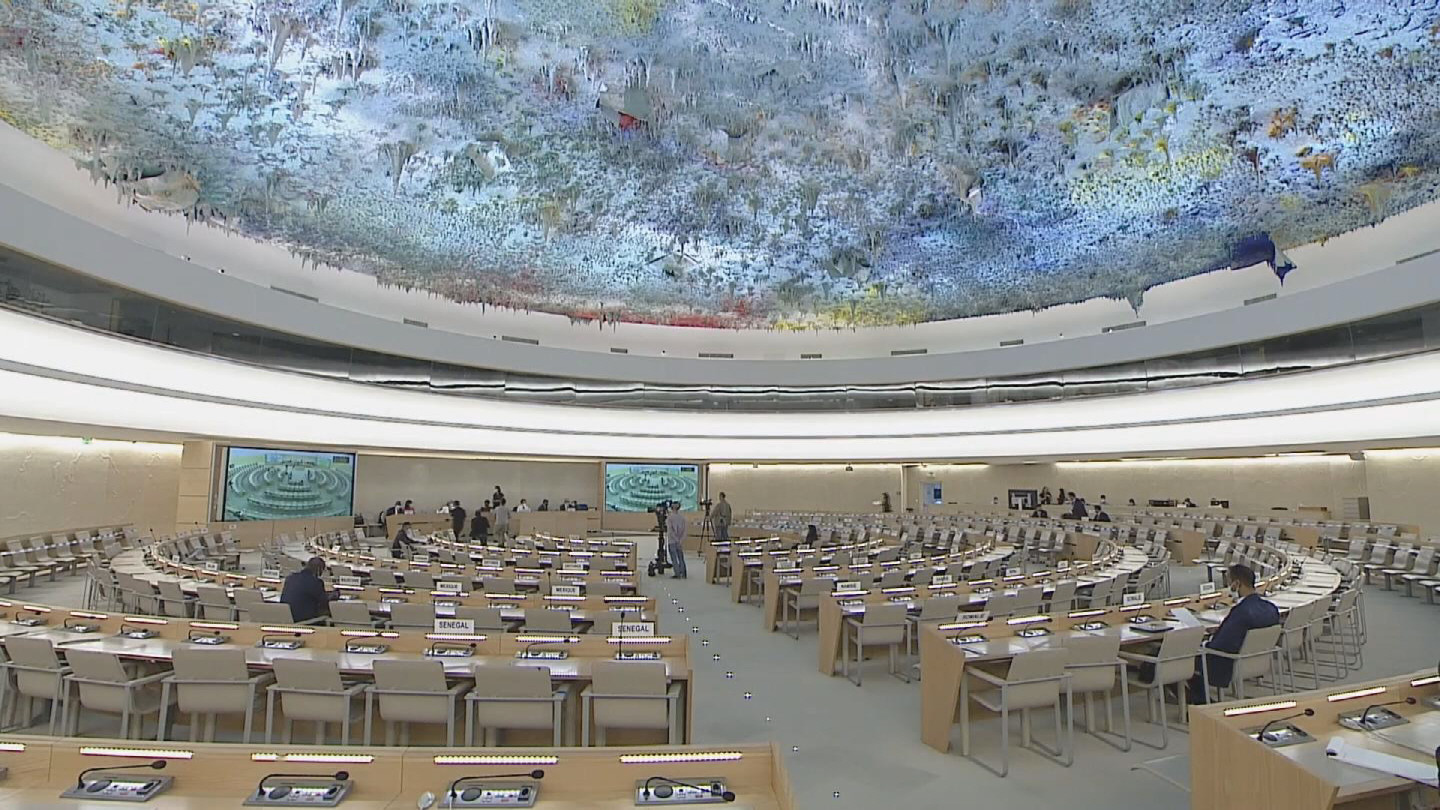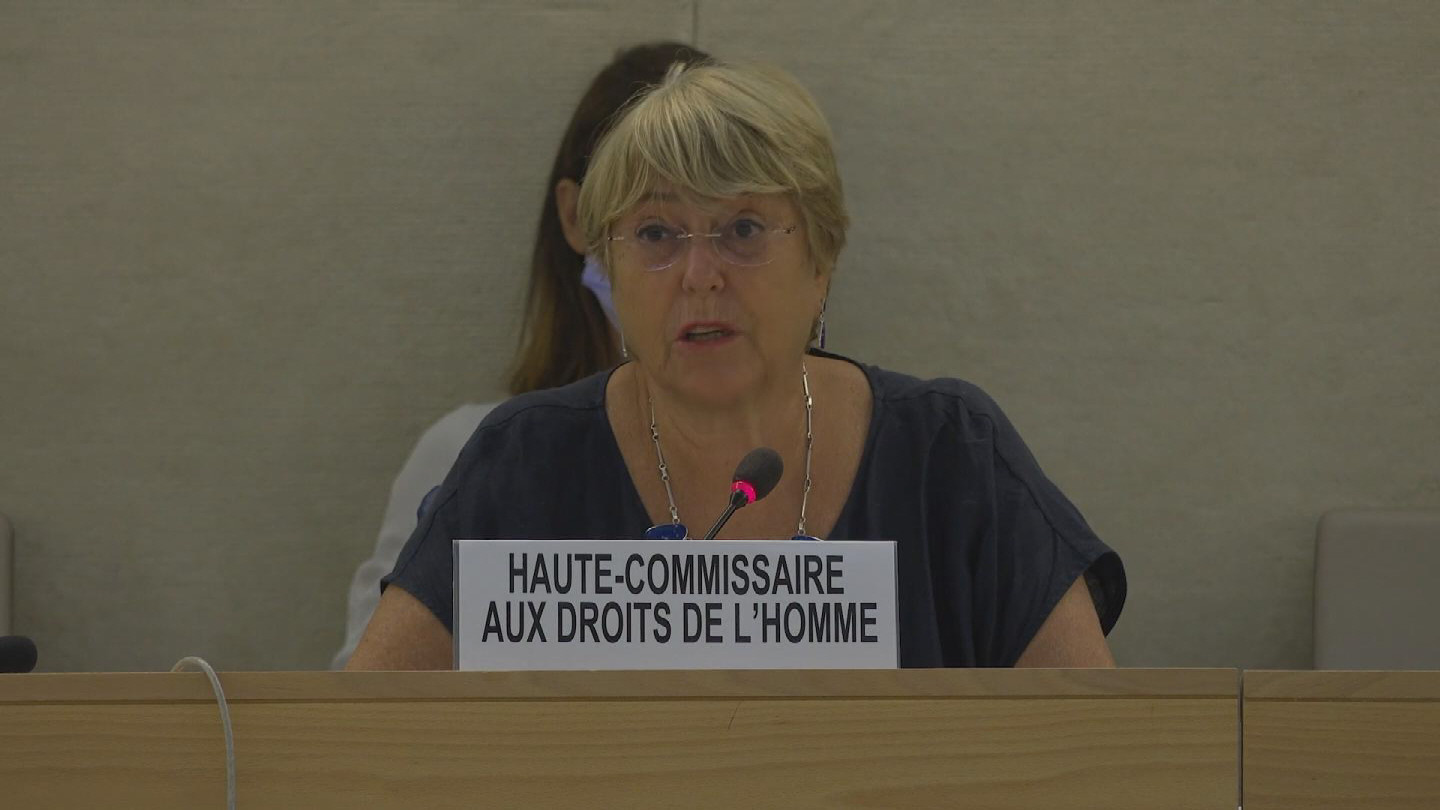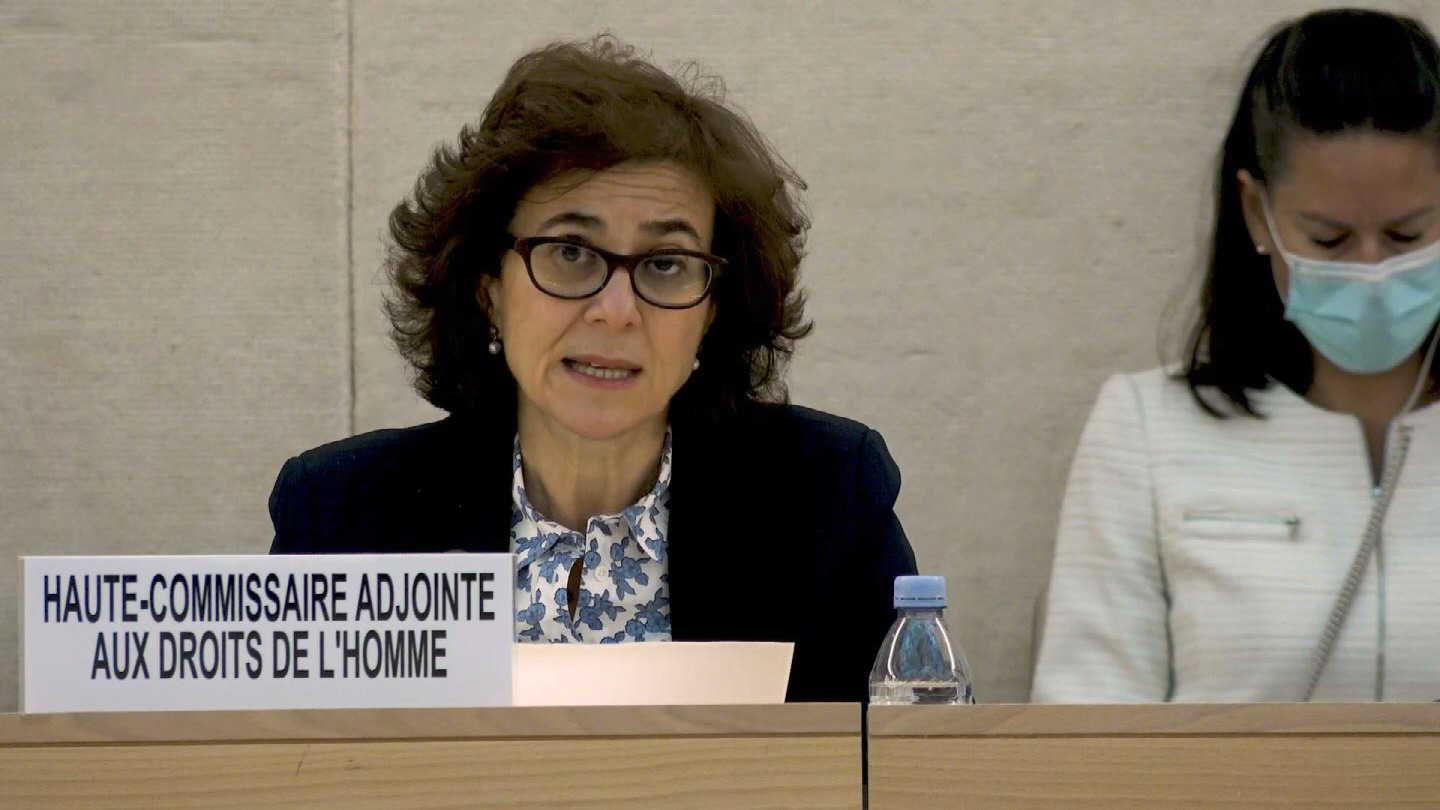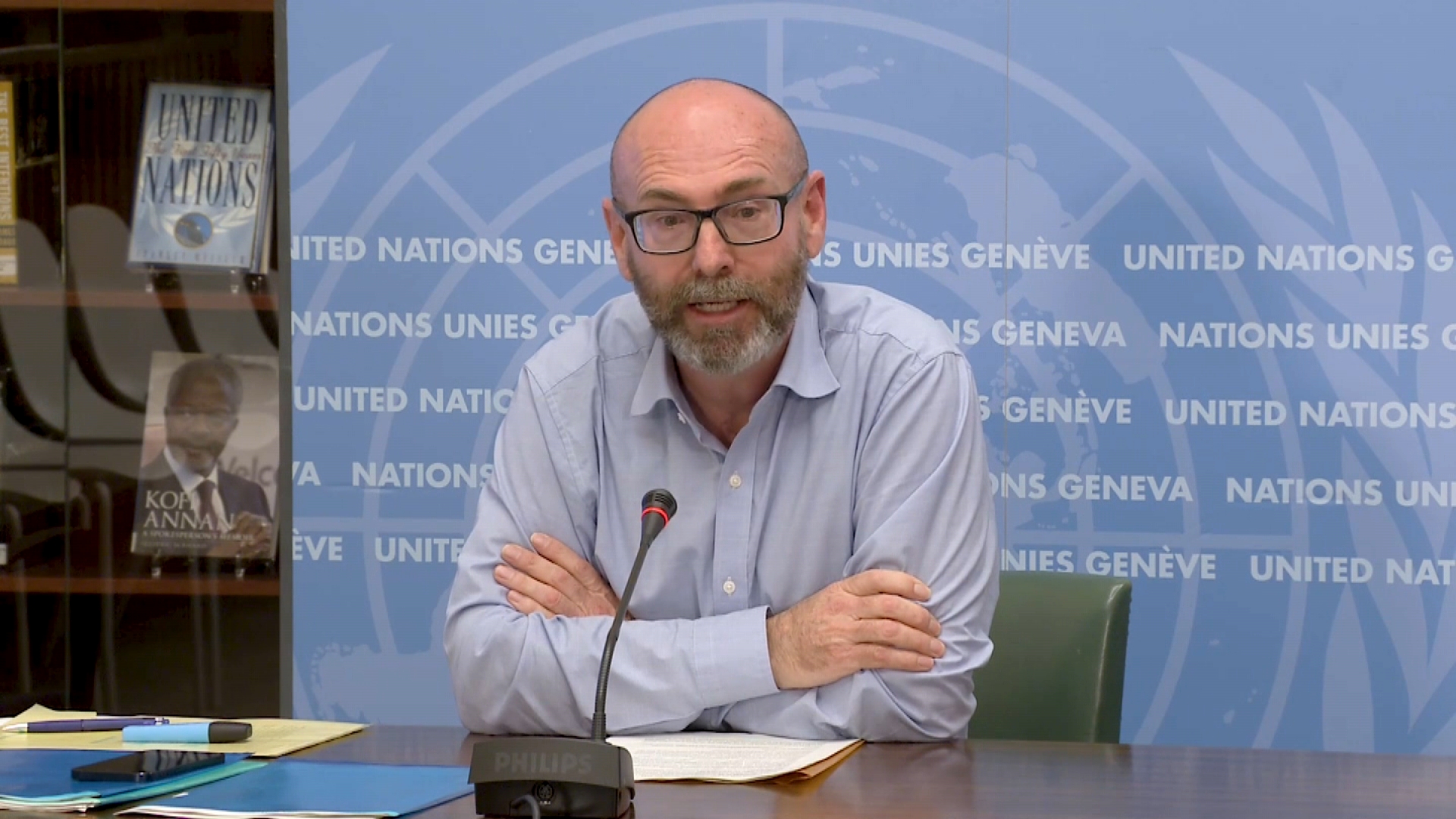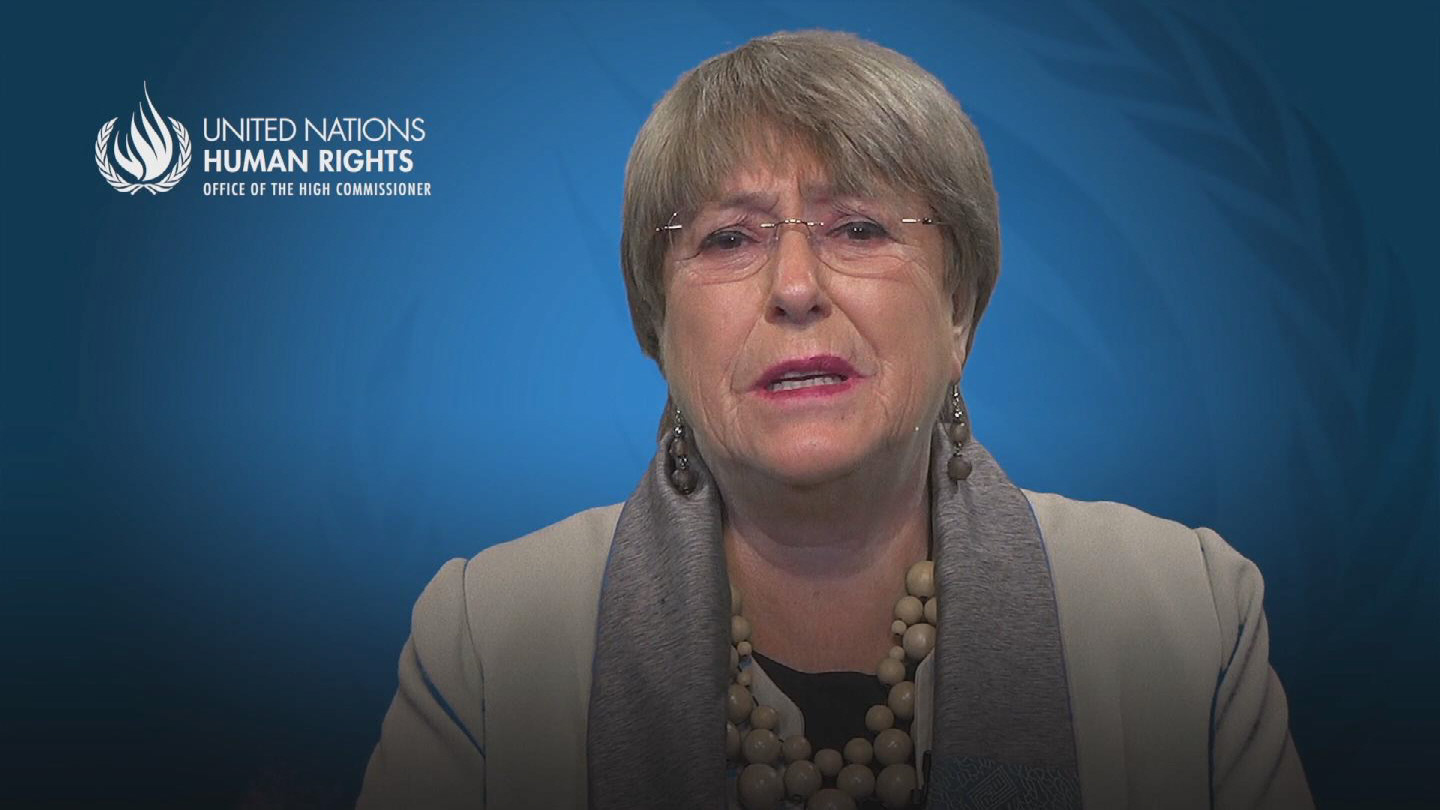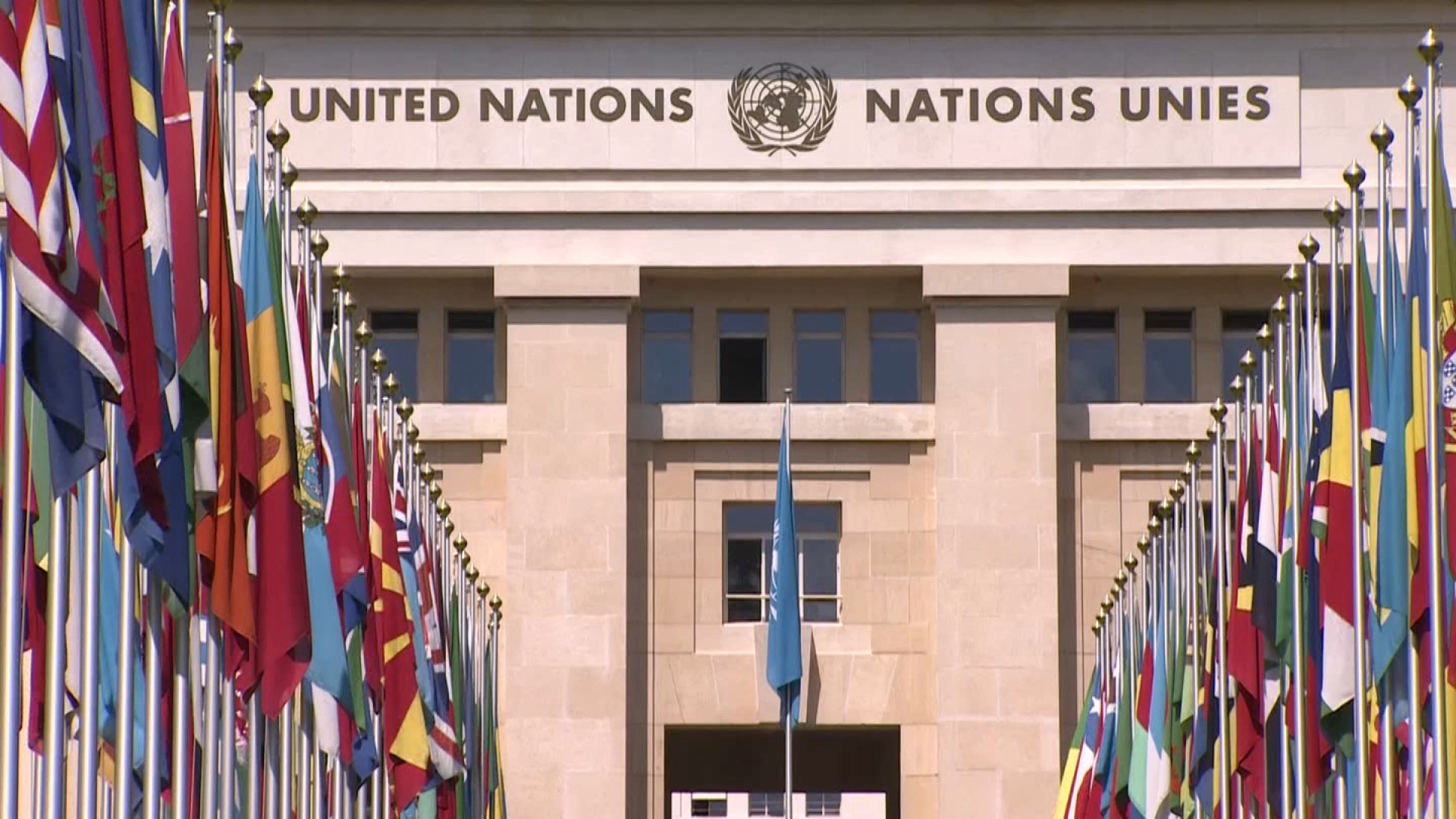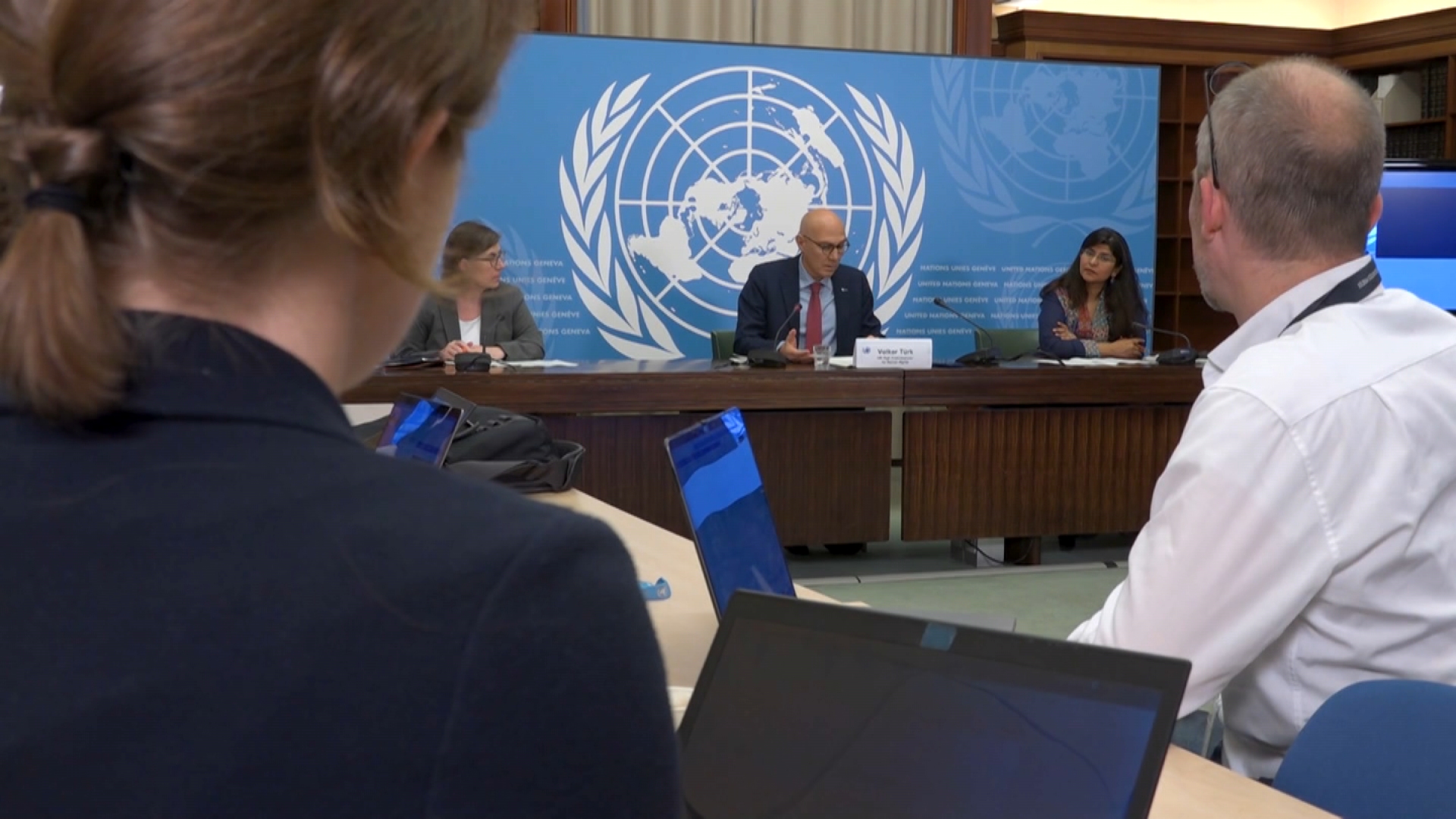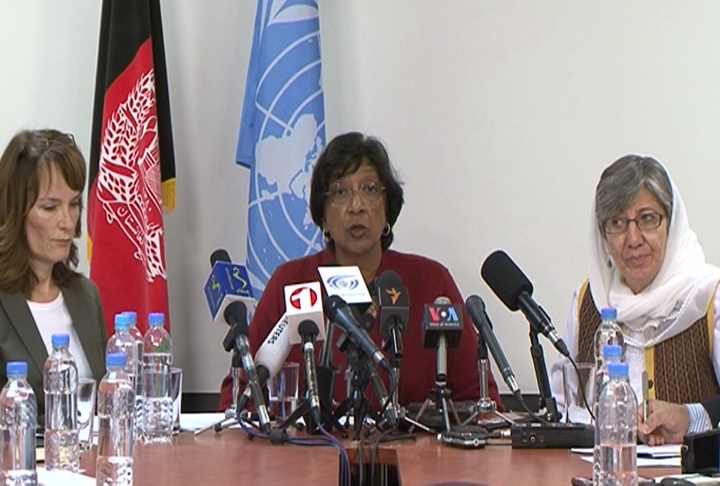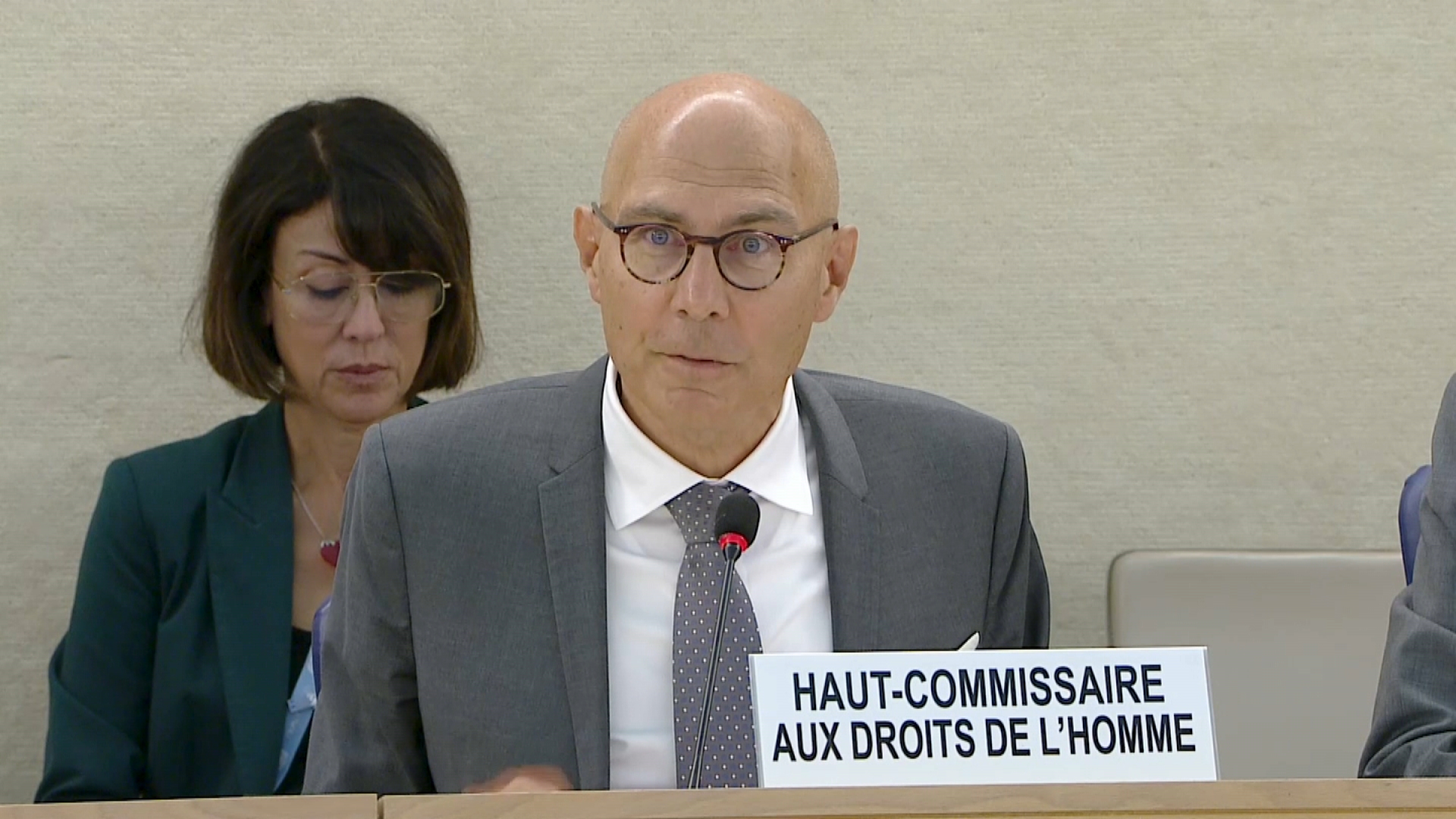Unifeed
OHCHR / AFGHANISTAN TORTURE DETENTION
STORY: OHCHR / AFGHANISTAN TORTURE DETENTION
TRT: 2:10
SOURCE: OHCHR
RESTRICTIONS: PLEASE CREDIT OHCHR AND UNAMA ON SCREEN
LANGUAGE: ENGLISH / NATS
DATELINE: 12 APRIL 2019 GENEVA, SWITZERLAND / FILE
FILE – UNAMA - 9 MAY 2018, KABUL AFGHANISTAN
1. Various shots, UN vehicle
12 APRIL 2019 GENEVA, SWITZERLAND
2. SOUNDBITE (English) Richard Bennett, Chief, Human Rights Service, United Nations Assistance Mission in Afghanistan (UNAMA):
“While it is good to see that there have been reductions in torture and ill-treatment of conflict-related detainees, this is not across the board. The figure is still nearly one-third, so it is way too high.”
FILE – UNAMA - 10 MAY 2018, KABUL, AFGHANISTAN
3. Aerial shot, Kabul
12 APRIL 2019 GENEVA, SWITZERLAND
4. SOUNDBITE (English) Richard Bennett, Chief, Human Rights Service, United Nations Assistance Mission in Afghanistan (UNAMA):
“Conditions for example can include overcrowding, insufficient clothing, lack of access to natural light and disciplinary measures that are restricted to solitary confinement and a lack of facilities for example for private interviews with lawyers.”
FILE – UNAMA - 10 MAY 2018, KABUL, AFGHANISTAN
5.Wide shot, street in Kabul
12 APRIL 2019 GENEVA, SWITZERLAND
6. SOUNDBITE (English) Richard Bennett, Chief, Human Rights Service, United Nations Assistance Mission in Afghanistan (UNAMA):
“We found that the torture and ill treatment tends to stop if the detainee confesses.”
FILE – UNAMA - 10 MAY 2018, KABUL, AFGHANISTAN
7. Wide shot, Street in Kabul
12 APRIL 2019 GENEVA, SWITZERLAND
8. SOUNDBITE (English) Richard Bennett, Chief, Human Rights Service, United Nations Assistance Mission in Afghanistan (UNAMA):
“Confessions obtained under torture are not valid in a court, and in addition to that, they are violations of domestic law in Afghanistan and of the torture convention.”
FILE – UNAMA - 10 MAY 2018, KABUL, AFGHANISTAN
9. Wide shot, Street in Kabul
12 APRIL 2019 GENEVA, SWITZERLAND
10. SOUNDBITE (English) Richard Bennett, Chief, Human Rights Service, United Nations Assistance Mission in Afghanistan (UNAMA):
“Our call on the government is to prevent this and eliminate this confession culture.”
FILE – UNAMA - 10 MAY 2018, KABUL, AFGHANISTAN
11. Wide shot, street in Kabul
12 APRIL 2019 GENEVA, SWITZERLAND
12. SOUNDBITE (English) Richard Bennett, Chief, Human Rights Service, United Nations Assistance Mission in Afghanistan (UNAMA):
“That is going in the right direction, but the measures taken are not yet sufficient.”
FILE – UNAMA - 10 MAY 2018, KABUL, AFGHANISTAN
13. Wide shot, street in Kabul
In its latest report on the treatment of conflict-related detainees in Afghanistan published today, the UN documents an encouraging reduction in the number of cases of torture since 2016, but notes its ongoing concern at the high number of detainees who continue to report torture and ill-treatment.
The joint report by the UN Assistance Mission in Afghanistan (UNAMA) and the UN Human Rights Office finds that nearly a third of conflict-related detainees interviewed provided credible and reliable accounts of having been subject to torture or ill-treatment.
The report is based on interviews with 618 detainees held in 77 facilities in 28 provinces across the country between 1 January 2017 and 31 December 2018.
It acknowledges progress made by the Government in implementing Afghanistan’s National Plan on the Elimination of Torture.
Richard Bennett, chief of Human Rights Service at the UN mission in the country said, “while it is good to see that there have been reductions in torture and ill-treatment of conflict-related detainees, this is not across the board. The figure is still nearly one-third, so it is way too high.”
He added, “conditions for example can include overcrowding, insufficient clothing, lack of access to natural light and disciplinary measures that are restricted to solitary confinement and a lack of facilities for example for private interviews with lawyers.”
While the reduction in the number of cases is encouraging, the report notes that the decline in use of torture or ill-treatment is not yet significant enough to indicate that the remedial measures taken are sufficient. The most common form of torture and ill-treatment reported was beatings, including with pipes and on feet. The vast majority of detainees said they had been tortured or ill-treated to force them to confess and that the treatment stopped once they did so.
Bennett said, “confessions obtained under torture are not valid in a court, and in addition to that, they are violations of domestic law in Afghanistan and of the torture convention.”
He made a call on the government to “prevent this and eliminate this confession culture,” adding that “that is going in the right direction, but the measures taken are not yet sufficient.”
Download
There is no media available to download.
